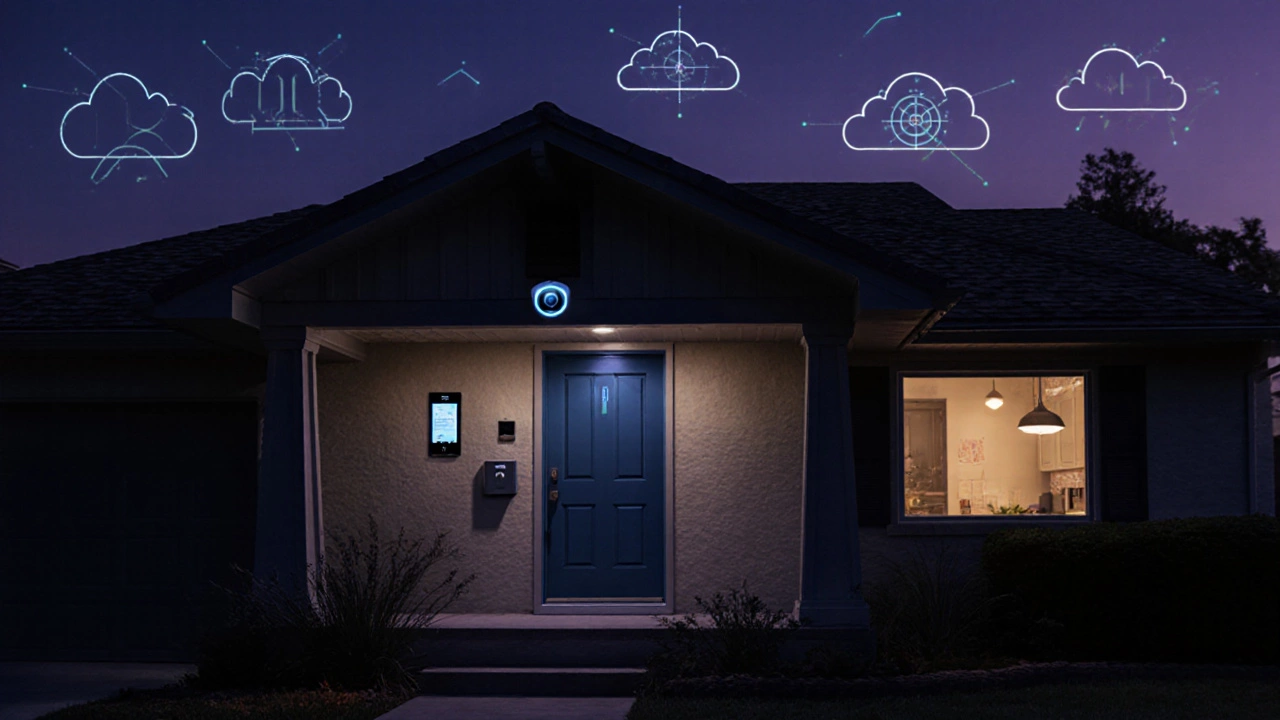When talking about Financial Health, the overall state of your money, savings, and spending habits. Also known as financial wellbeing, it shapes how you can afford and maintain home protection tools.
One major piece of the puzzle is the Security System Cost, the upfront and ongoing expense of cameras, alarms, and monitoring services. Knowing the price breakdown helps you decide whether a DIY camera kit or a professional CCTV installation makes more sense for your pocket. Another key factor is CCTV Installation, the process of setting up surveillance hardware, wiring, and cloud storage—the better you plan this step, the less you’ll waste on hidden fees.
Salary budgeting also plays a role. The earnings of a CCTV Operator, the professional who monitors live feeds and maintains camera systems can affect how much you allocate to security staff versus technology. If you factor in average UK salaries, you’ll see a clear link between labor costs and overall financial health. This connection is why many homeowners compare the cost of hiring an operator to the price of a self‑monitored system.
Financial health encompasses budgeting for security systems, because overspending on gadgets can drain savings, while underspending may leave gaps in protection. Security system cost influences financial health directly—higher upfront spend can be offset by lower monthly fees if you choose a wired setup. Salary of CCTV operators impacts financial health by adding recurring payroll to the expense list. Budget planning, therefore, must weigh equipment price, installation labor, and ongoing monitoring fees to keep the whole picture balanced.
Practical tips start with a clear cost‑benefit analysis. List every item: camera hardware, power solutions, storage plans, and labor. Assign realistic values based on market research—2025 CCTV installation in Adelaide averages £1,200 for a standard four‑camera setup, while a premium package can exceed £3,000. Add operator wages; the top earnings for CCTV operators in 2025 hover around £45,000 annually. Subtract any expected savings from using self‑monitored or hybrid systems, which can shave up to 30% off monthly costs.
Once you have numbers, calculate the ROI of each choice. A higher‑priced multi‑sensor alarm might lower false alarms, saving you potential fines and insurance premium hikes. Likewise, a well‑placed motion sensor can reduce the need for extra cameras, trimming both hardware and bandwidth costs. Treat every security upgrade as an investment that protects assets and potentially lowers insurance premiums—both boost financial health over time.
Another angle is maintenance. Regular checks on batteries, firmware, and wiring prevent costly breakdowns. Scheduling annual service for your alarm system costs roughly £150, but it avoids emergency replacements that can run into hundreds. Including maintenance in your budget keeps cash flow predictable, a hallmark of solid financial health.
Overall, the collection below shows how different security topics intersect with money matters. You’ll find guides on budgeting for CCTV, salary insights for security staff, cost‑saving tricks for alarm systems, and more. Dive in to see how each piece fits into the bigger picture of protecting both your home and your wallet.

A clear look at why Vivint is in the news, covering regulatory scrutiny, financial trends, customer concerns, and practical steps for existing users.